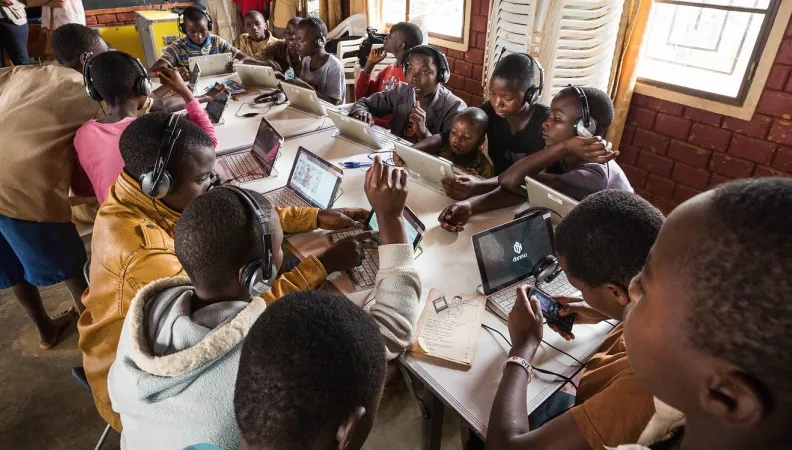Share the page
Thai, Swahili, Arabic...AFD Speaks more and more Languages
Published on

AFD already publishes in French, English, Spanish, and Portuguese. But to better meet the needs of our partners and beneficiaries, we’re now publishing some of our articles, research documents, and videos in Vietnamese, Arabic, and Swahili – languages that are less commonly used in international institutions, but which are crucial for billions of people.
AFD operates in more than 120 countries on every continent, putting us in constant contact with a wide variety of cultural and linguistic identities. To embrace this diversity, adapt to local contexts, and make our actions accessible to stakeholders, we’ve decided to publish in new languages used by large segments of the world’s population.
This initiative is in line with AFD Group's “by your side” approach, which means working alongside countries, peoples, clients, and partners to develop a relationship based on mutual respect, equality, and a shared commitment to sustainable development. explains why this policy takes on special significance in Africa: “We’re in the process of redefining our relationship in Africa, says AFD Chief Executive Officer Rémy Rioux, “and moving beyond the now outdated framework established after countries attained their independence."
Laure Blédou, Communication and African Communities/Diasporas Officer at AFD believes the “by your side” approach and its application are important: “It helps in understanding the way people see the world and position themselves in relation to others, thereby helping what we say strike another chord.”
AFD works to communicate not only broadly to a global audience, but directly. “In Africa, there are 2,000 languages and 2,000 ways of thinking,” says Danouta Liberski-Bagnoud, researcher at the French National Centre for Scientific Research (CNRS) and director of research at the Institut des Mondes Africains.
Articles are already being penned in additional languages, such as this scientific paper (link in French) on the economic empowerment of women in Africa in Swahili and Arabic and this one in Vietnamese, on the challenges of climate change in Vietnam.
“More translation effort is required for these languages than for English,” says Adeline Laulanié, head of research publications at AFD Publications, “but this way we can reach an audience that is often younger and more female." And in places where women's rights are often flouted, it's crucial to address them directly, in their own language.
A World Bank publication in Swahili
AFD has also produced the World Bank's first Swahili-language research report as part of a co-publication between the two institutions.
These new languages are not limited to the written word.
We've filmed videos, for example, in Armenian, Arabic and Thai. Other video content is dubbed, as in the case of the West African sitcom "C'est la vie" (“That’s Life” - see above), a series that depicts life at a health center in a fictional Dakar neighborhood. Initially produced in French, it has since been dubbed into Hausa, Malinke, Wolof, Fulani, and English.
"This year, a survey was carried out among AFD's readership to gain a better understanding of our audience, and 30% of respondents said they want more content in other foreign languages on the website," says Sabrina Hadjadj Aoul, in charge of communication, promotion and dissemination of research publications at AFD.
These findings show that our readers have a genuine demand and suggest the possibility of attracting new audiences.
Further efforts needed
AFD wants to make the systematic translation of its scientific publications an ongoing policy, broadening the language offering to rarer languages such as Xhosa or Zulu. Original productions in Spanish are also being planned, including a podcast on the Gemmes Colombia program in the run-up to the COP16 on biodiversity to be held in Cali at the end of October. In this way we can boost our visibility among producers of research, who usually publish their work only in English.
For Laure Blédou, it's also important to take a multi-faceted approach to the use of local languages, for example by giving priority to radio programs and podcasts for languages that are more spoken than written, and by encouraging field personnel to learn national languages. According to her, this would enable AFD Group "to get closer to its stakeholders."
